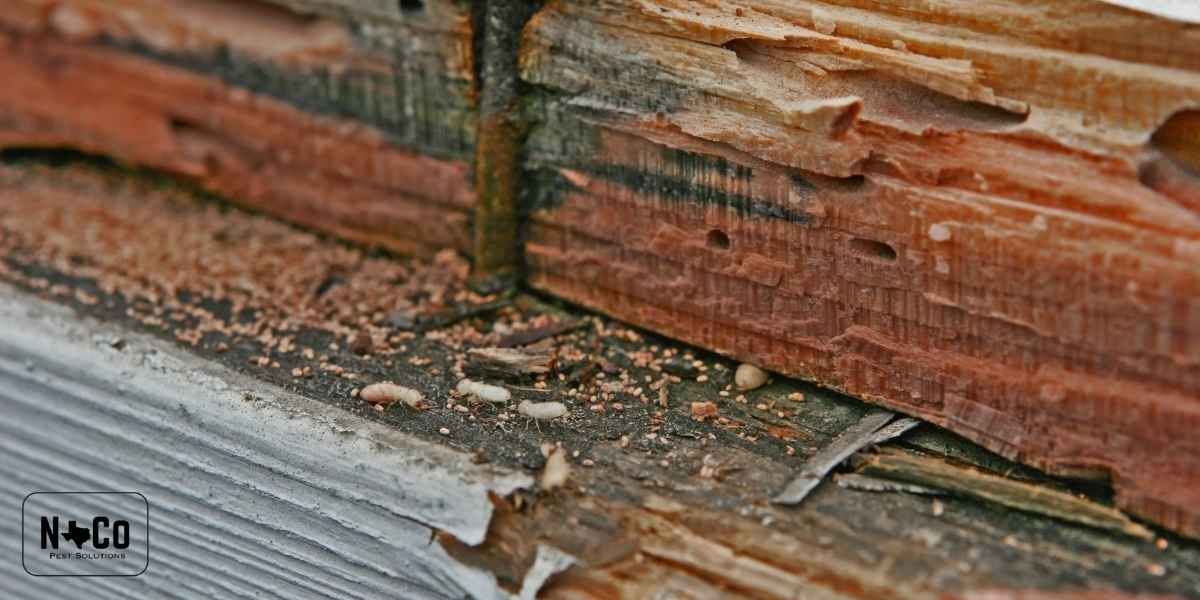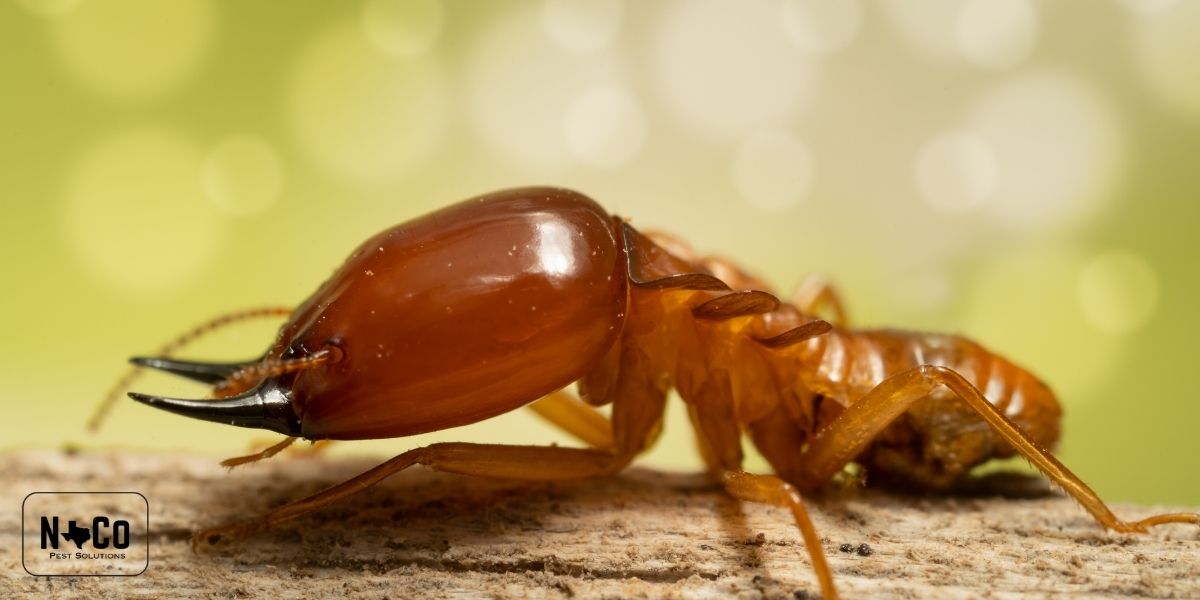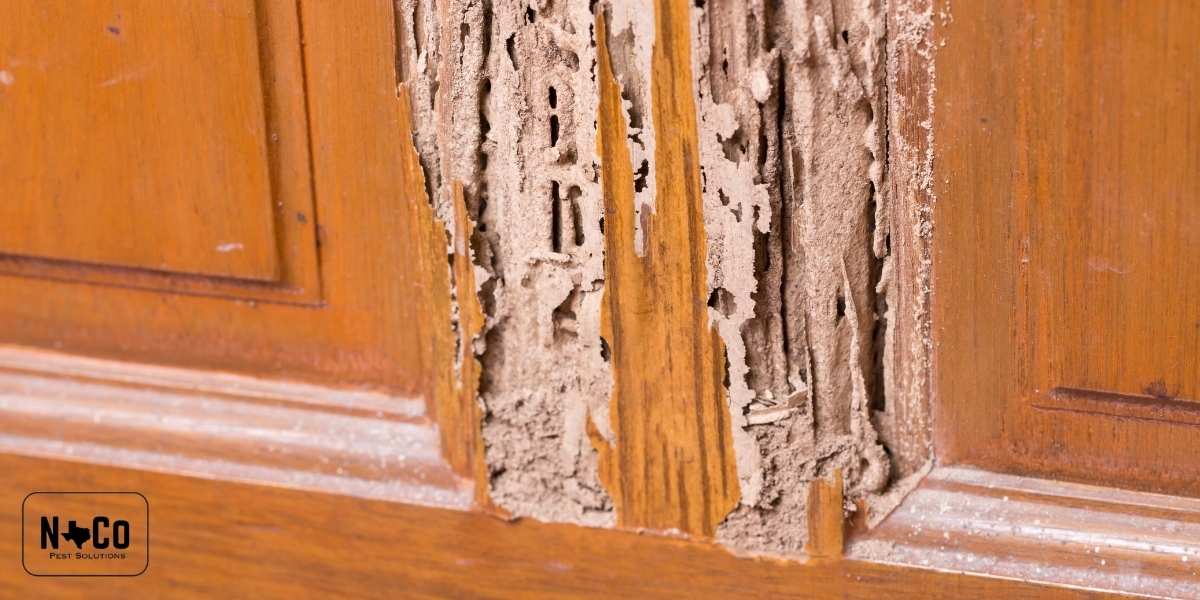Termites in Texas: Identification, Prevention, and Treatment
Why waiting or guessing can cost you thousands in damage to your property.
Termites are sneaky pests that live in and eat wood in properties found in Texas. NOCO Pest Services operates in the Houston and Dallas Ft.Worth areas and, yes, we treat termites!
Whether you’re a homeowner or a property manager, understanding termites and preventative measures is crucial to protecting your investment. With Texas’ warm climate and diverse geography, termites thrive here year-round. The good news? By learning about these pests and how to handle them, you can take the steps needed to protect your home and your peace of mind.
Our goal in this piece of content is to help homeowners identify, prevent, and perhaps treat termites on their own. If all else fails, you can reach out to NOCO Pest Solutions to help treat and exterminate termites before they destroy the wood in your home.
Lets get started.
What Are Termites and Why Are They a Problem in Texas?
Termites are small, wood-eating insects that live in large colonies. They aren’t just annoying—they can cause significant structural damage to your home. It is estimated that termites cause millions of dollars in damage across the U.S. every year, and Texas is a hotspot due to its warm, humid climate that’s perfect for these pests. This is particularly true for Houston, with its high humidity, and the Dallas/Fort Worth area, where suburban sprawl provides ample opportunities for infestations.
Unlike other common household pests, termites are sneaky, quiet, and ellusive. These pests can easily chew through wood, exteriors, wallpaper, and other entry points and begin eating, repopulating, and entrenching deeper into your home. This is alarming because they can go undetected until the damage becomes extensive. While termite activity often peaks in spring or early summer, in Texas, termites can become active as early as January, especially during milder winters. That’s why early identification and treatment are so important, especially in regions like Houston and Dallas, where termite activity is high year-round.
Types of Termites Found in Texas Homes
Texas is home to several species of termites, each with unique behaviors and habitats. Here are the most common types you might encounter:
1. Subterranean Termites
Subterranean termites are the most common and destructive species in Texas. They build mud tubes to protect themselves as they travel between their colony and food sources. These termites require moisture to survive and are usually found near soil or water leaks. In areas like Houston, with its frequent rainfall and high water tables, subterranean termites are a significant concern.
2. Drywood Termites
Drywood termites don’t need contact with soil to survive. Instead, they infest dry wood, such as furniture, attics, and hardwood floors. They’re often harder to detect because they leave few signs until the infestation is severe. Homeowners in the Dallas/Fort Worth area, where new construction often uses treated wood, should still be vigilant for these termites in older homes.
3. Formosan Termites
Formosan termites are an aggressive species of subterranean termites. They’re known for their large colonies and ability to cause rapid damage. Formosans can chew through wood, insulation, and even soft metals. This species is particularly active in Houston due to the warm, moist environment.
Signs of a Termite Infestation
Detecting termites early can save you thousands of dollars in repairs. Here are some telltale signs:
- Mud Tubes: Subterranean termites build pencil-sized mud tubes on walls, foundations, and other surfaces.
- Discarded Wings: Swarmers (reproductive termites) shed their wings after finding a place to start a new colony. These wings are often found near windowsills or doorways.
- Hollow-Sounding Wood: Tap on wooden structures. If they sound hollow, termites may have eaten away the inside.
- Frass (Termite Droppings): Drywood termites leave behind tiny, pellet-like droppings near infested wood.
In both Houston and Dallas/Fort Worth, it’s common for homeowners to first notice termites during spring swarming season, when reproductive termites take flight to establish new colonies. However, termites in Texas don’t always wait for spring. If temperatures are warm enough, they can become active even in January. If you notice any of these signs, it’s time to take action immediately.
How to Prevent Termites in Texas
Prevention is always better than cure when it comes to termites. Here are some effective steps you can take to termite-proof your property:
- Keep Wood Away From Your Home: Store firewood, lumber, and other wooden materials at least 20 feet away from your house.
- Fix Leaks: Termites are attracted to moisture, so repairing leaky pipes, faucets, and roofs is essential. This is particularly critical in Houston due to the high humidity levels.
- Seal Entry Points: Inspect your home’s foundation and seal any cracks or gaps where termites could enter.
- Maintain Proper Drainage: Make sure water drains away from your home’s foundation to prevent damp soil, especially in flood-prone areas like Houston.
- Regular Inspections: Schedule professional termite inspections at least once a year, especially if you’ve had infestations in the past. Homes in Dallas/Fort Worth often benefit from proactive inspections due to seasonal weather variations.
What to Do If You Have Termites
If you suspect termites in your home, don’t panic. Here’s what to do:
- Identify the Problem: Determine whether you’re dealing with termites or another pest. A professional inspection can confirm this.
- Assess the Damage: Once termites are confirmed, evaluate how extensive the damage is. Professionals can provide a detailed report.
- Choose a Treatment Plan: Depending on the severity, you may need one or more of the following:
- Liquid Termiticides: These create a barrier around your home to kill termites and prevent new ones from entering.
- Baiting Systems: Baits attract termites, which then spread the poison to the rest of the colony.
- Fumigation: For severe infestations, fumigation may be necessary to eliminate termites completely.
- Contact NOCO Pest Solutions: Don’t let termites wreak havoc on your property. NOCO Pest Solutions specializes in termite treatment and prevention tailored to the unique challenges of Houston and Dallas/Fort Worth. Fill out our online form or message us on Facebook to schedule your free inspection and start protecting your home today!
- Follow Up: After treatment, schedule regular inspections to ensure the termites are gone for good.
NOCO Pest Solutions is here to help. Whether you need a one-time treatment or ongoing protection, our experienced technicians are ready to assist you. Don’t wait—contact us now!
Typical Cost of Termite Control in Texas
The cost of termite control varies based on the size of your home, the type of termite, and the treatment method provided by pest control companies. Here are some general estimates:
- Inspections: $75–$150 (often free with treatment).
- Liquid Treatments: $3–$12 per linear foot.
- Bait Systems: $1,500–$3,000 depending on the size of the property.
- Fumigation: $1,000–$4,000 based on square footage.
Investing in prevention and early treatment can save you from costly repairs down the road. In cities like Houston and Dallas, where termite damage is common, early detection is especially important.
NOCO Pest Solutions, however, can help you get rid of termites at a competitive price.
NOCO PEST SOLUTIONS TERMITE PRICING
$800 – 1200
Q: How common are termites in Texas?
A: Very common. Texas’ climate makes it a perfect breeding ground for termites year-round, particularly in Houston and Dallas/Fort Worth.
Q: Can I treat termites myself?
A: DIY methods might help with minor issues, but professional treatment is recommended for thorough and long-lasting results.
Q: How long does termite treatment last?
A: Liquid treatments can last 5–10 years, while bait systems require regular maintenance.
Q: When is termite season in Texas?
A: Termite activity is highest in the spring, especially in cities like Houston and Dallas/Fort Worth, where swarming termites are commonly seen. However, termites can become active as early as January if temperatures are mild.



